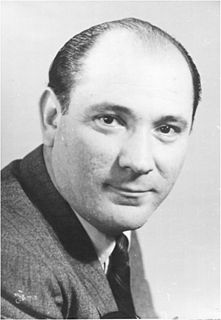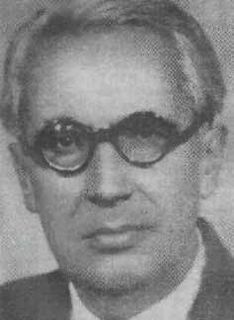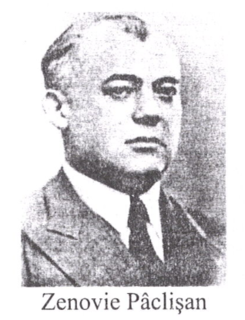Related Research Articles

The Socialist Republic of Romania was a Marxist–Leninist one-party communist state that existed officially in Romania from 1947 to 1989. From 1947 to 1965, the state was known as the Romanian People's Republic. The country was an Eastern Bloc state and a member of the Warsaw Pact with a dominant role for the Romanian Communist Party enshrined in its constitutions. Geographically, Romania bordered the Black Sea to the east, the Soviet Union to the north and east, Hungary and Yugoslavia to the west, and Bulgaria to the south.

The Romanian Communist Party was a communist party in Romania. Successor to the pro-Bolshevik wing of the Socialist Party of Romania, it gave ideological endorsement to a communist revolution that would replace the social system of the Kingdom of Romania. After being outlawed in 1924, the PCR remained a minor and illegal grouping for much of the interwar period, and submitted to direct Comintern control. During the 1920s and 1930s, most of its activists were imprisoned or took refuge in the Soviet Union, which led to the creation of competing factions which at times came in open conflict. This did not prevent the party from participating in the political life of the country through various front organizations, most notably the Peasant Workers' Bloc. The Communist Party emerged as a powerful actor on the Romanian political scene in August 1944, when it became involved in the royal coup that toppled the pro-Nazi government of Ion Antonescu. With support from Soviet occupational forces, the PCR was able to pressure King Michael I into abdicating, and establish the Romanian People's Republic in December 1947.

Ana Pauker was a Romanian communist leader and served as the country's foreign minister in the late 1940s and early 1950s. Ana Pauker became the world's first female foreign minister when entering office in December 1947. She was also the unofficial leader of the Romanian Communist Party immediately after World War II.

The Czechoslovak Republic or Fourth Czechoslovak Republic existed between 1948 and 1960 in Czechoslovakia. Czechoslovak Socialist Republic was the official name of the country from 1960 to 23 April 1990. From 1948 until the end of November 1989, the country was under Communist rule and was a satellite state of the Soviet Union.

Vasile Luca was an Austro-Hungarian-born Romanian and Soviet communist politician, a leading member of the Romanian Communist Party (PCR) from 1945 and until his imprisonment in the 1950s. Noted for his activities in the Ukrainian SSR in 1940–1941, he sided with Ana Pauker during World War II, and returned to Romania to serve as the minister of finance and one of the most recognizable leaders of the Communist regime. Luca's downfall, coming at the end of a conflict with Gheorghe Gheorghiu-Dej, signaled that of Pauker.

Pitești Prison was a penal facility in Pitești, Romania, best remembered for the reeducation experiment which was carried out between December 1949 and September 1951, during Communist party rule. The experiment, which was implemented by a group of prisoners under the guidance of the prison administration, was designed as an attempt to violently "reeducate" the mostly young political prisoners, who were primarily supporters of the fascist Iron Guard, as well as Zionist members of the Romanian Jewish community. The Romanian People's Republic adhered to a doctrine of state atheism and the inmates who were held at Pitești Prison included religious believers, such as Christian seminarians. According to writer Romulus Rusan, the experiment's goal was to re-educate prisoners to discard past religious convictions and ideology, and, eventually, to alter their personalities to the point of absolute obedience. Estimates for the total number of people who passed through the experiment range from at least 780 to up to 1,000, to 2,000, to 5,000. Journalist Laurențiu Dologa estimates almost 200 inmates died at Pitești, while historian Mircea Stănescu accounts for 22 deaths during the period, only 16 of them with documented participation in the "re-education".

The Union of Communist Youth was the Romanian Communist Party's youth organisation. Like many Young Communist organisations, it was modelled after the Soviet Komsomol. It aimed to cultivate young cadres into the party, as well as to help create the "new man" envisioned by communist ideologues.

Teohari Georgescu was a Romanian statesman and a high-ranking member of the Romanian Communist Party.

Ion Vincze was a Romanian communist politician and diplomat. An activist of the Romanian Communist Party (PCR), he was married to Constanța Crăciun, herself a prominent member of that party.

Nicolae Bălan was an Austro-Hungarian-born Romanian cleric, a metropolitan bishop of the Romanian Orthodox Church. The son of a priest, he graduated from Czernowitz University and taught theology at Sibiu from 1905 to 1920. That year, he became Metropolitan of Transylvania, an office he would hold for the rest of his life. In the 1930s, he was an open supporter of the Iron Guard. In 1942, during the Holocaust, he intervened in Bucharest against the planned deportation of Romanian Jews from the Regat, Southern Transylvania and the Banat to the Nazi extermination camps. In 1948, after a communist regime was established, he publicly assisted the new authorities in their effort to disband the Romanian Greek-Catholic Church.

Nicolae Colan was an Austro-Hungarian-born Romanian cleric, a metropolitan bishop of the Romanian Orthodox Church. From a peasant background, he completed high school in Brașov, followed by a period of wandering during World War I that saw him in Sibiu, Bucharest, Moldavia, Ukraine and ultimately Bessarabia, where he advocated union with Romania. After the war, he completed university and taught New Testament theology at Sibiu from 1924 to 1936. Entering the clergy in 1934, he soon became bishop at Cluj, remaining there when Northern Transylvania temporarily became Hungarian territory during World War II. In 1957, he advanced to Metropolitan of Transylvania, an office he held for the final decade of his life.
Romulus Cândea was an Austro-Hungarian-born Romanian ecclesiastical historian.

Victor Vâlcovici was a Romanian mechanician and mathematician.

Petre P. Panaitescu was a Romanian literary historian. A native of Iași, he spent most of his adult life in the national capital Bucharest, where he rose to become a professor at its main university. As such, he challenged various aspects of the dominant nationalist historiography. However, he also joined the ultra-nationalist Iron Guard, and headed the university during the movement's brief time in power. After the Guard was violently suppressed at the beginning of 1941, he lost his professorial position. When a communist-dominated government entered office in early 1945, he was arrested and imprisoned. Panaitescu was freed by the end of the year, the new authorities finding useful his theories of Slavic influence on Romania's national trajectory. He worked as a researcher in the latter part of his career, retiring in 1965, two years before his death.
Dumitru Caracostea was a Romanian folklorist, literary historian and critic.
Ilie E. Torouțiu was an Austro-Hungarian-born Romanian literary historian.

Zenovie Pâclișanu was an Austro-Hungarian-born Romanian historian, diplomat and cleric. A native of Transylvania, he completed a doctorate at Vienna, and during the 1910s was active in the cultural and religious life of Blaj. Following the creation of Greater Romania, which he enthusiastically supported, he became a civil servant, twice taking part in treaty negotiations. After World War II, the new communist regime suppressed his Greek-Catholic Church and threw Pâclișanu in prison, where he died. His work, banned under communism but partly re-edited in the years since, focuses on the history of Transylvania between the 17th and 19th centuries, particularly in the religious sphere.
Vasile Gheorghiu was an Austro-Hungarian-born Romanian theologian.
Eugen C. Botezat was an Austro-Hungarian-born Romanian zoologist.

Victor Slăvescu was a Romanian economist and politician. He was a professor of economics at the Bucharest Academy of Economic Studies and a titular member of the Romanian Academy. He also served as Finance Minister (1934–1935) and Minister of Materiel (1939–1940).
References
- (in Romanian) Păun Otiman, "1948 - Anul imensei jertfe a Academiei Române", in Academica, Nr. 4 (31), December 2013, p.115-124